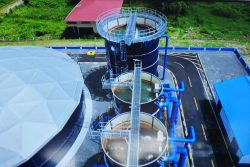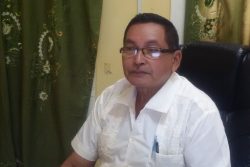Dear Editor,
Generally, today’s world no longer supports or wants to be seen supporting the old destructive forestry practices (to the environment and to the forestry peoples, animals, plants, etc). This change of consumer’s attitude has been brought about largely because of the work of various environmental and cultural survival groups (local and international), modern science, better business practices, and common sense.
The market place or consumers (e.g. North America and Europe) are demanding that the forestry products (‘green products’) comply with environmentally friendly and sustainable practices. Hence, sensible and adaptive forestry businesses that want access to these more lucrative but informed consumers must conform to certain new industry standards. Hence international companies try to get and maintain FSC certification.
SGS (SGS) is an independent Swedish Company that certifies compliance with the Principles of the Forestry Stewardship Council (FSC). SGS did an audit (Feb, 28th 2005 – March 4th and Aug 29th – Sept 3rd, 2005) and granted the Barama Company Ltd temporary FSC certification (17th Feb, 2006 to 16th Feb.2011. It is usually valid for 5 years.) Certain recommendations (Corrected Action Requested (CAR)) were made that were to be implemented in a limited time frame. The validity of this FSC certification was questioned by certain groups. The full report (60 pages) can be found online at:
(http://www.sgs.com/9205-gy_-_barama_ma2005-10_-_ad36a-03_gm.pdf) found referenced on a WRM bulletin: http://www.wrm. org.uy/bulletin/105/Guyana.html.
This report has some interesting points (page 57): One stakeholder questioned – (1) The legality of Barama’s contract with the Government of Guyana “








